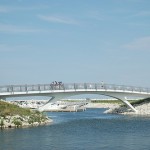 On Friday, February 26, 2010, Marquette University Law School (MULS) will hold its annual Public Service Conference at the Alumni Memorial Union on the Marquette University campus on the increasingly important topic of water law. The conference, entitled “Water and People,” will address water issues in Wisconsin (as well as nationally and internationally), development and the environment, regulation, and water ethics. Statewide leaders from business, government, and non-profit served on a steering committee that worked with Assistant Dean for Public Service, Dan Idzikowski, and myself (I coordinate the MULS water law program) to plan the conference. Based on the group’s efforts, experts from Wisconsin, around the United States, and from Canada will gather to talk about some of the most important topics in the field of water law. The conference will also feature a keynote address by Cameron Davis, senior advisor to the United States EPA Administrator for Great Lakes Restoration. You can learn more about the conference and register for the conference at http://law.marquette.edu/cgi-bin/site.pl?2130&pageID=4303.
On Friday, February 26, 2010, Marquette University Law School (MULS) will hold its annual Public Service Conference at the Alumni Memorial Union on the Marquette University campus on the increasingly important topic of water law. The conference, entitled “Water and People,” will address water issues in Wisconsin (as well as nationally and internationally), development and the environment, regulation, and water ethics. Statewide leaders from business, government, and non-profit served on a steering committee that worked with Assistant Dean for Public Service, Dan Idzikowski, and myself (I coordinate the MULS water law program) to plan the conference. Based on the group’s efforts, experts from Wisconsin, around the United States, and from Canada will gather to talk about some of the most important topics in the field of water law. The conference will also feature a keynote address by Cameron Davis, senior advisor to the United States EPA Administrator for Great Lakes Restoration. You can learn more about the conference and register for the conference at http://law.marquette.edu/cgi-bin/site.pl?2130&pageID=4303.
While no blog post can truly capture all that this conference will entail, here is a preview of the panels and topics. The first morning panel, entitled “Ripples of a Water Ethic in Wisconsin” will set the tone of, and overall theme for, the conference by exploring Wisconsin’s water law tradition and its efforts to protect its water resources. Building off Wisconsinite Aldo Leopold’s seminal work detailing an ethic for land conservation, this panel will look at fresh water’s special place in Wisconsin’s ethos and address how our society might balance the demand for water today by public and private, agricultural and industrial, and rural and urban interests.
The second panel of the morning will address the false dichotomy between economic development and environmental protection. The panel will discuss how many Wisconsin businesses have embraced a strong regulatory framework and developed profitable businesses. The panel will also address how environmental advocates, regulatory agencies, business, agriculture, and other stakeholders can work together more effectively to ensure that water is available and used in a purposeful fashion.
Following the lunchtime keynote address by Mr. Davis, conference attendees will have the opportunity to attend one of four breakout panels on a variety of topics: water pricing, access to water and the Great Lakes Compact, ground water use and land planning, and water quality. The second afternoon panel will be another plenary session that highlights examples from other jurisdictions — California; Massachusetts; Minnesota; and Ontario, Canada — and how they are attending to water law and policy. The final panel of the day will be two experts on water law — Professor Bradley C. Karkkainen of the University of Minnesota Law School and Professor David M. Uhlmann of the University of Michigan Law School — who will reflect on the day’s events and discuss how Wisconsin might continue to move forward on water law and policy. There will a reception following the last panel.
If you are interested in attending this event, please visit the conference website at http://law.marquette.edu/cgi-bin/site.pl?2130&pageID=4303 where you can register. You can also contact Assistant Dean for Public Service, Dan Idzikowski at daniel.idzikowski@marquette.edu or me, Professor Matt Parlow, at matthew.parlow@marquette.edu.

In my previous line of work, I was fortunate enough to participate in some of the preliminary planning meetings for the Milwaukee 7 Water Council – a dedicated group of private and public sector leaders – who were working to secure Milwaukee as the water hub of the country. Water usage, scarcity, research, development and conservation are some of the most important national and global issues facing us today. During one of the Milwaukee 7 meetings, I learned about Marquette Law School’s Water Law program. Water Law intersects with various other areas of the law including IP, Environmental, Property and International Law. I look forward to learning more about Wisconsin’s water law during the morning conference.